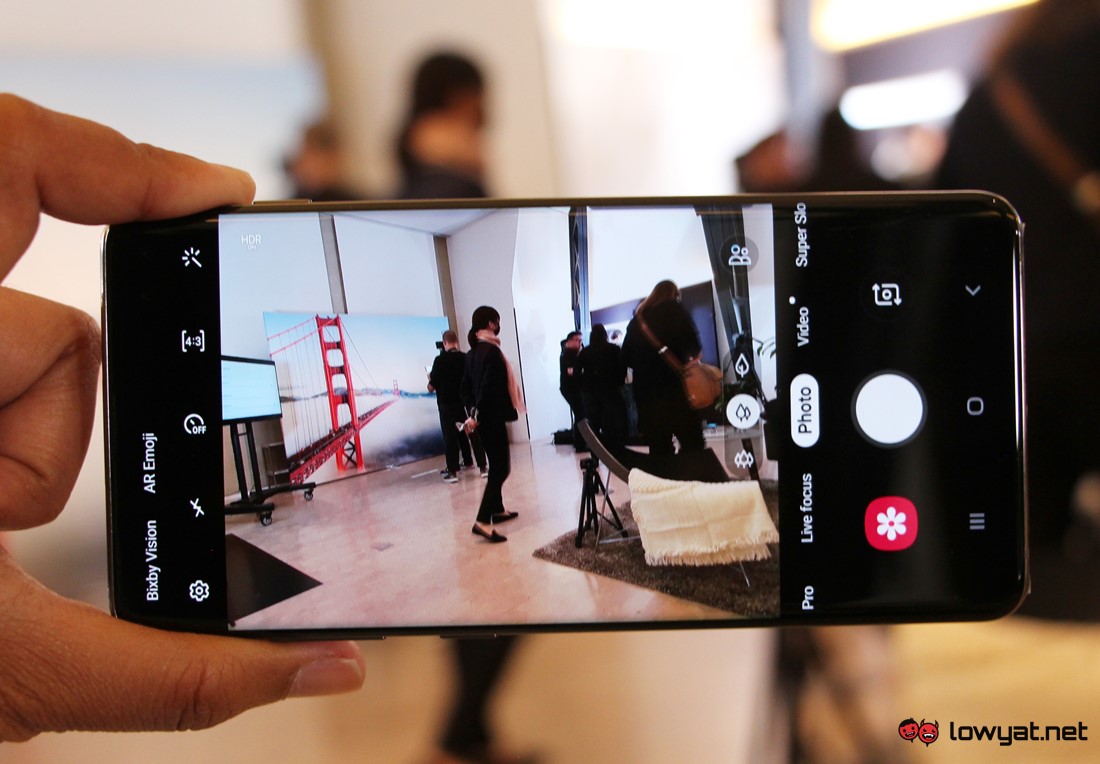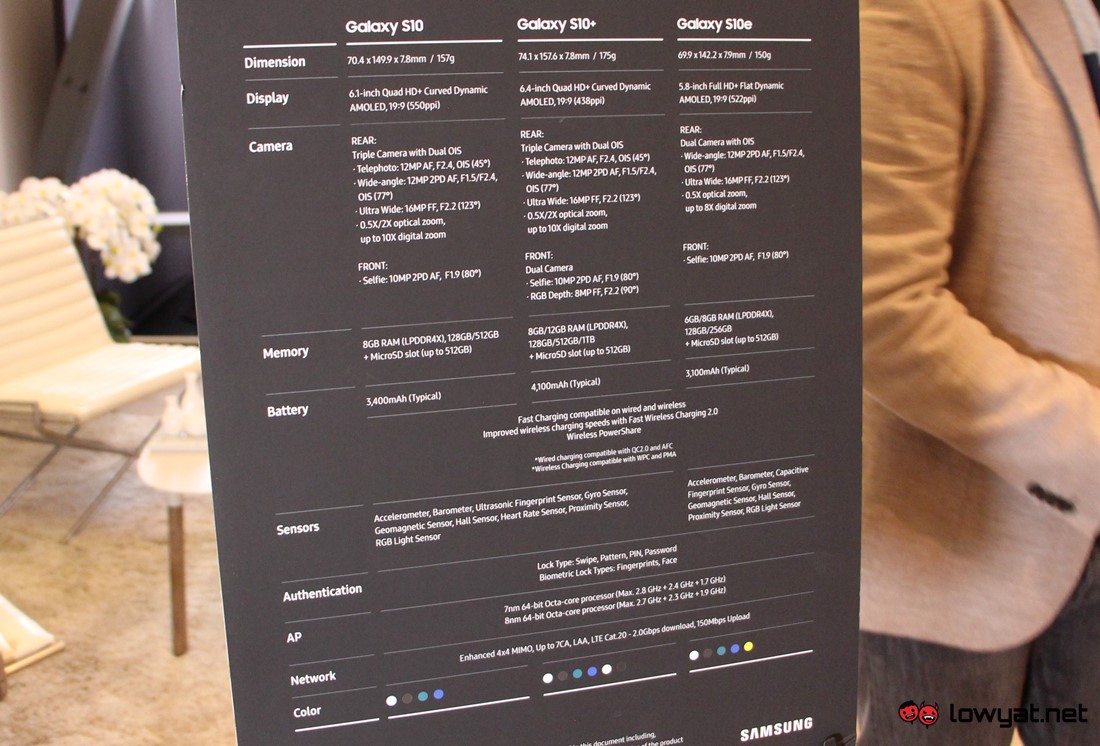Build upon the experiences that the company has gathered since the release on the original Galaxy S back in 2010, Samsung stated during its pre-event briefing session that the innovations within Galaxy S10 series revolved around three main areas: display, camera, and performance.
On the display front, the IP68-certified Galaxy S10 series is said to the first to feature a new panel from the company called Dynamic AMOLED display. With maximum brightness of 1200 nits, the new display panel is also HDR10+-certified with color accuracy that is said to the best in its class according to Display Mate and has met TUV Rheinland’s Eye Comfort standards. Aside from featuring Dynamic AMOLED panel, the display on Galaxy S10 devices has also been classified as Infinity-O display since it features in-display camera. Additionally, Galaxy S10 and Galaxy S10+ are also equipped with ultrasonic fingerprint scanner from Qualcomm which has been fortified with security enhancements through integration with Samsung Knox.
As for the camera, Samsung has added an ultra-wide camera into the Galaxy S10 lineup which is a first for the 10-year old Galaxy S series. Available on across all three models, the new camera offers a combination of 16MP sensor with f/2.2 lens that has 123-degrees field of view. Samsung has also listed Super Steady feature which is digital stabilization technology for video recording as part of its camera innovation for Galaxy S10 series. With the ability to shoot videos at up to 4K on both selfie and rear camera, users can also choose to record in HDR10+ through the rear camera on Galaxy S10 series devices.
Taking advantage of the Neural Processing Unit inside the Galaxy S10 devices, Samsung also stated the company has improved the AI-powered Scene Optimizer feature on them by having it to recognize and process scenes than Galaxy S9 devices. The NPU also powered a new feature on Galaxy S10 devices that is called Shot Suggestion which provides recommendations on composition in order to help users achieve better framing on their photos.
When Samsung talked about innovations in terms of performance, the company didn’t mean just the raw performance of the premium chips within the Galaxy S10 series though. This is because those innovations also include features such as the AI-powered performance optimizations for battery, CPU, RAM, and temperature on Galaxy 10 devices which is done based on how users utilize these devices over time. Not only that, Galaxy S10 devices also able to learn user’s app consumption which would enable them to run frequently used apps faster. Samsung has also listed the support for Wi-Fi 6 standard together with Intelligent Wi-Fi feature which allows Galaxy S10 devices to seamlessly switch between Wi-Fi and LTE as of the performance innovations for Galaxy S10 series alongside the ability to identify risky Wi-Fi networks.
There is also the new Wireless PowerShare feature which allow users to charge other Qi-compatible devices using Galaxy S10 devices. Samsung also stated that the company have improved the wireless charging speed on Galaxy S10 series but didn’t state the exact improvement statistics during its pre-launch media briefing. Another feature that Samsung has listed as performance innovation for Galaxy S10 series is the new Bixby Routines. While it seems odd to position Bixby-related feature under the performance innovations umbrella, the new feature aims to help reduced repeated actions by users by providing them with preset and personalized routines based on their habits.
Samsung also didn’t forget about gamers out there and has included several related features for them on Galaxy S10 devices. Among them are the vapor chamber cooling system and optimizations for games that were developed using the Unity game engine as well as Dolby Atmos support under gaming mode. Naturally, Samsung has also included its Knox security solution into Galaxy S10 devices. Aside from the integration with the Qualcomm ultrasonic fingerprint scanners that we mentioned earlier, the Knox implementation on Galaxy S10 series also includes hardware-based secure storage that users can utilize to house their private keys for blockchain mobile services.
In terms of availability, the Galaxy S10, Galaxy S10 Plus, and Galaxy S10e will be generally available for pre-order starting from today onwards depending on respective markets before being released to stores on 8 March. Stay tuned for the information on the Malaysian release of the Galaxy S10 devices coming your way shortly.






